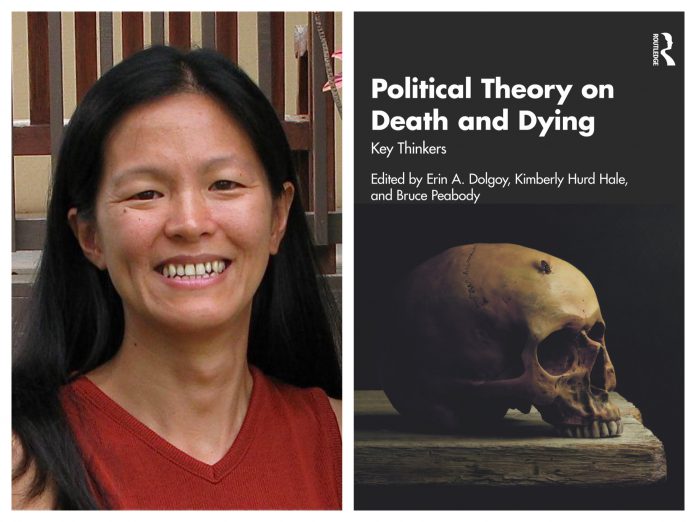Dr. Li-Hsiang Lisa Rosenlee, a professor of Philosophy at the University of Hawaiʻi–West Oʻahu, wrote a chapter in a recently published anthology that focuses on the political and social implications of death and dying.
Rosenlee’s book chapter, “Confucian Authority and the Politics of Caring,” is featured in the anthology, “Political Theory on Death and Dying,” published in September by Routledge and edited by Erin A. Dolgoy, Kimberly Hurd Hale, and Bruce Peabody.
“In this chapter, I focus on the care-based Confucian political authority to address the issues of aging, dying, and death by utilizing concepts such as ren (humaneness), xiao (filiality), li (ritual), and datong (great community),” Rosenlee said.
The publisher’s website describes the anthology as a comprehensive, encyclopedic review that compiles the latest scholarship, research, and debates. It takes a chronological and multi-disciplinary approach on 45 canonical figures and thinkers, and discusses each of their ethical and philosophical accounts on mortality and death. Each chapter focuses on a single established figure in political philosophy, as well as religious and literary thinkers, covering classical to contemporary thought on death.
According to the abstract of Rosenlee’s book chapter, “In the Western liberal political model, the topic of aging, dying and death is, by and large, relegated to the private realm concerning only the individual in question.
“But in Confucianism with its emphasis on relational personhood, family and ritual, these existential topics are as personal as they are political. For Confucianism blurs the line not only between private and public, family and state, but also between ethics and politics, virtue and power.
The summary continues, “And hence the topic of aging, dying and death, in the Confucian political paradigm, concerns more than the private individual in question; rather it is a question of political obligation for the state to care for its citizens in vulnerable positions as well as a question of efficacious political authority to effect moral education onto its citizens to care for one another intra- and inter-generationally.”
The publisher’s site calls “Political Theory on Death and Dying” a key contribution to the field and an excellent overview for students and researchers who study philosophy of death, the history of political thought, and political philosophy.
